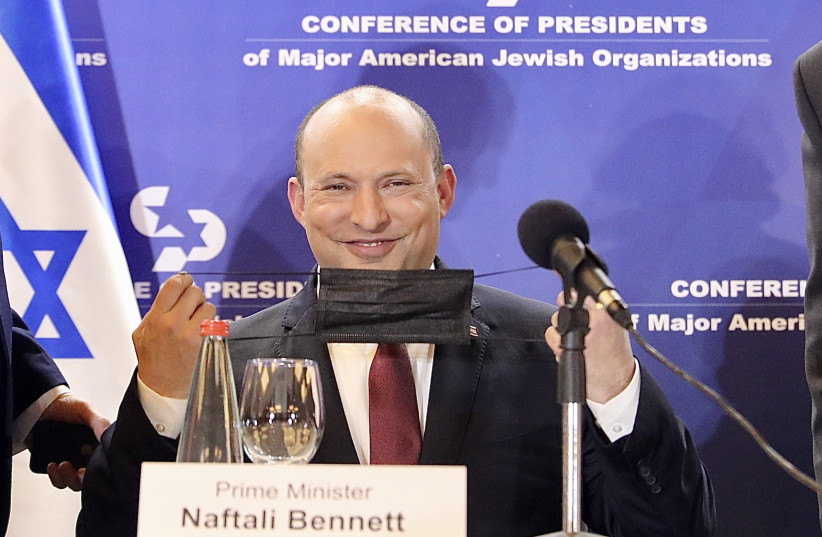President Isaac Herzog maintained diplomatic discretion on Tuesday when he hosted the Conference of Presidents of Major American Jewish Organizations at his official residence.
Both he and they referred to his impending foreign visits. But beyond mentioning that his visit to Greece and Cyprus are an expression of friendship and that his visit to Turkey is an opportunity to advance Muslim-Jewish dialogue – as well as on with the Turkish-Jewish community – Herzog avoided controversy.
Herzog in his previous capacities as chairman of the Jewish Agency, opposition leader, minister and cabinet secretary, had met most of his guests on many occasions and was on first name terms with them. But for several of the participants, including conference chair Dianne Lob, this was their first visit to the president’s official residence.
Aside from making a brief welcoming address, Herzog wanted to hear their impressions and their concerns, and answered their questions.

Widely perceived as diplomatically talented, Herzog said his main focus was to subdue tensions in Israel, encourage mutual respect an d understanding for all demographic groups. National unity, not uniformity, is his goal. This includes helping the underprivileged and those with disabilities. “There’s a lot of stuff on the President’s agenda,” he said.
Asked about integrating haredim into mainstream Israeli society and the work force, Herzog replied that dialogue was the way. “The haredi community cannot be judged as one,” he said. “There are many facets and many sea changes going on.”
Another questioner asked how to deal with antisemitism in America, which “is not subtle. It’s right in your face.” Herzog said that he consulted with Professor. Irwin Cotler, whom he regards as one of the world’s greatest experts on fighting antisemitism.
Herzog also credited Britain’s Chelsea Football Club for educating against hatred and antisemitism, stressing the importance of getting through to the masses with high-impact enterprises.
A former South African spoke of the challenges facing South African Jewry, which she said is not sufficiently addressed. Wary of saying anything undiplomatic about the South African government, Herzog uttered a terse comment. “We know the problems of the South African Jewish community. They need sympathy and empathy from some of the more affluent communities.”
Another source of concern was that secular Israeli Jews appear to be alienated from Judaism. Herzog responded by saying secular Jews are linked to Jewish tradition in many different ways, including through literature, poetry and song, he said.
